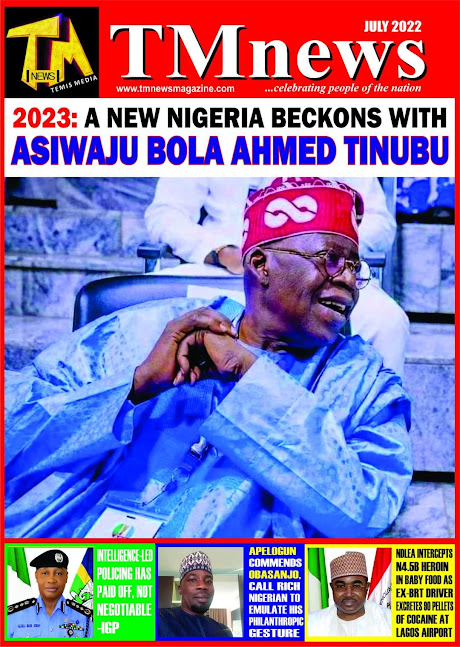Senator Salisu Calls For Unified Global Payment System and Free Movement Among African Countries
The Senator representing Ogun Central in the National Assembly, Shuaib Afolabi Salisu has advocated for the establishment of an African Payment System to centralize and streamline the payment of goods and services across the continent.Salisu who is the Chairman of the Senate Committee on ICT and Cyber Security made the call at the 13th African Internet Governance Forum currently ongoing in Addis Ababa, Ethiopia. He emphasized the importance of such a system as a critical step toward achieving the goals of the African Continental Free Trade Agreement (AfCFTA).
According to him a priority which the forum must focus on is the African payment system. “When we talk about digital technology and cross-border data flows, we must also ensure that money can flow seamlessly with the data. As I speak now, making payments for services here in Ethiopia is a cumbersome process. It is imperative that we pursue an African global payment system to facilitate trade and services. This is essential for the success of the continental free trade agreement and the digital economy we are building. People need to be able to pay for services and move freely between African countries,” he stated.
Senator Salisu also called for the free movement of Africans across the continent, stressing that technological integration must go hand-in-hand with ease of mobility. He frowned at situations where only privileged persons with diplomatic passports enjoy unhindered access at airports across Africa. “Mr. Chairman, it is regrettable that I was only able to attend this forum because I carry a diplomatic passport. Many Nigerians and other African parliamentarians face significant challenges in obtaining access to African Union events. Some delegates are still stuck at the airport, waiting for clearance. As we integrate technology, we must also work towards integrating our people by enabling free movement across Africa,” he urged.
Speaking on the successes recorded by Nigeria in data governance and cybersecurity, Senator Salisu, who also serves as Chairman of the West African Parliamentarian Network on Internet Governance, highlighted Nigeria’s progress in that sector to include the enactment of a Data Protection and Privacy Act and the establishment of a commission to oversee its implementation.
According to him, “the commission is not just about enforcement; it is building capacity and requiring organizations to appoint Data Protection Officers, similar to the way they appoint auditors. This bottom-up approach ensures effective data governance,” Senator Salisu explained.
On cybersecurity, he noted Nigeria’s proactive stance, stating, “The Cybersecurity Act, first enacted in 2015, was amended last year to reflect current realities. The amendment identified critical national information infrastructure that must be protected. A few weeks ago, the President signed a gazette officially designating key infrastructure in both the public and private sectors as critical to national security.”
“With a sense of pride, I can say that Nigeria has the most developed banking system in Africa. This is why Nigerian banks are present across the continent. Banking data, though primarily private sector-driven, is now recognized as part of our national information infrastructure under the cyber security framework.”
Senator Salisu also highlighted Nigeria’s ongoing efforts to further strengthen its cybersecurity laws. “We are currently amending the Cybersecurity Act again. A few weeks ago, we held consultations with key stakeholders, including the European Union, the Council of Europe, and the Federal Ministry of Justice. The aim is to develop a new Act that reflects present realities while aligning with international protocols such as the Budapest Convention and emerging United Nations standards. Nigeria is moving decisively in this direction,” he concluded.
The 13th African Internet Governance Forum is holding for two days, between November 20th and 22nd 2024 in Addis Ababa with the theme “building our Multi-Stakeholder Digital Future for Africa. The forum, is discussing among other topics, inclusive and collaborative approaches to addressing internet governance issues across the continent.



























No comments:
Post a Comment